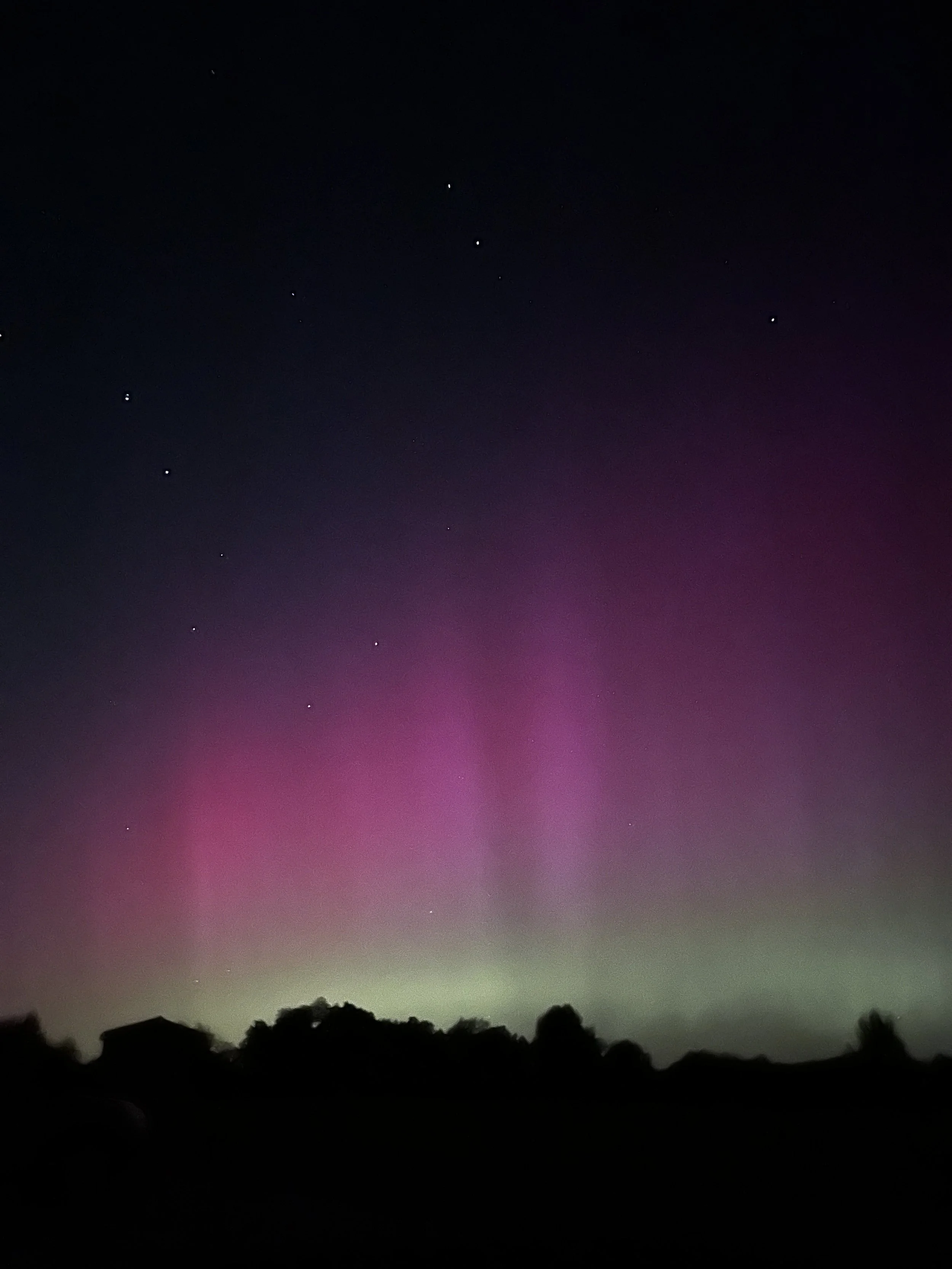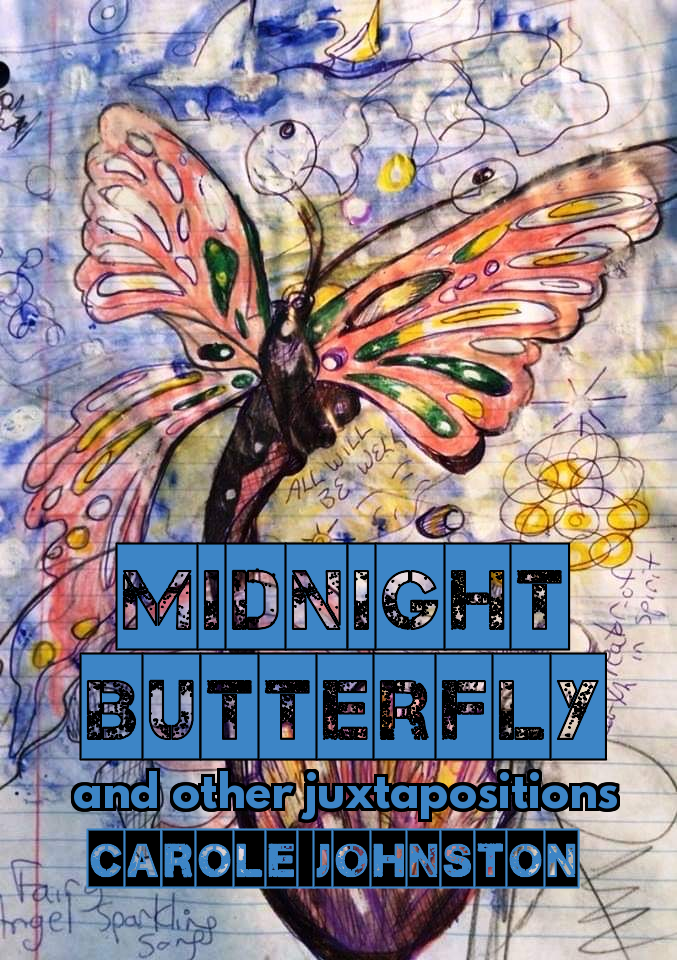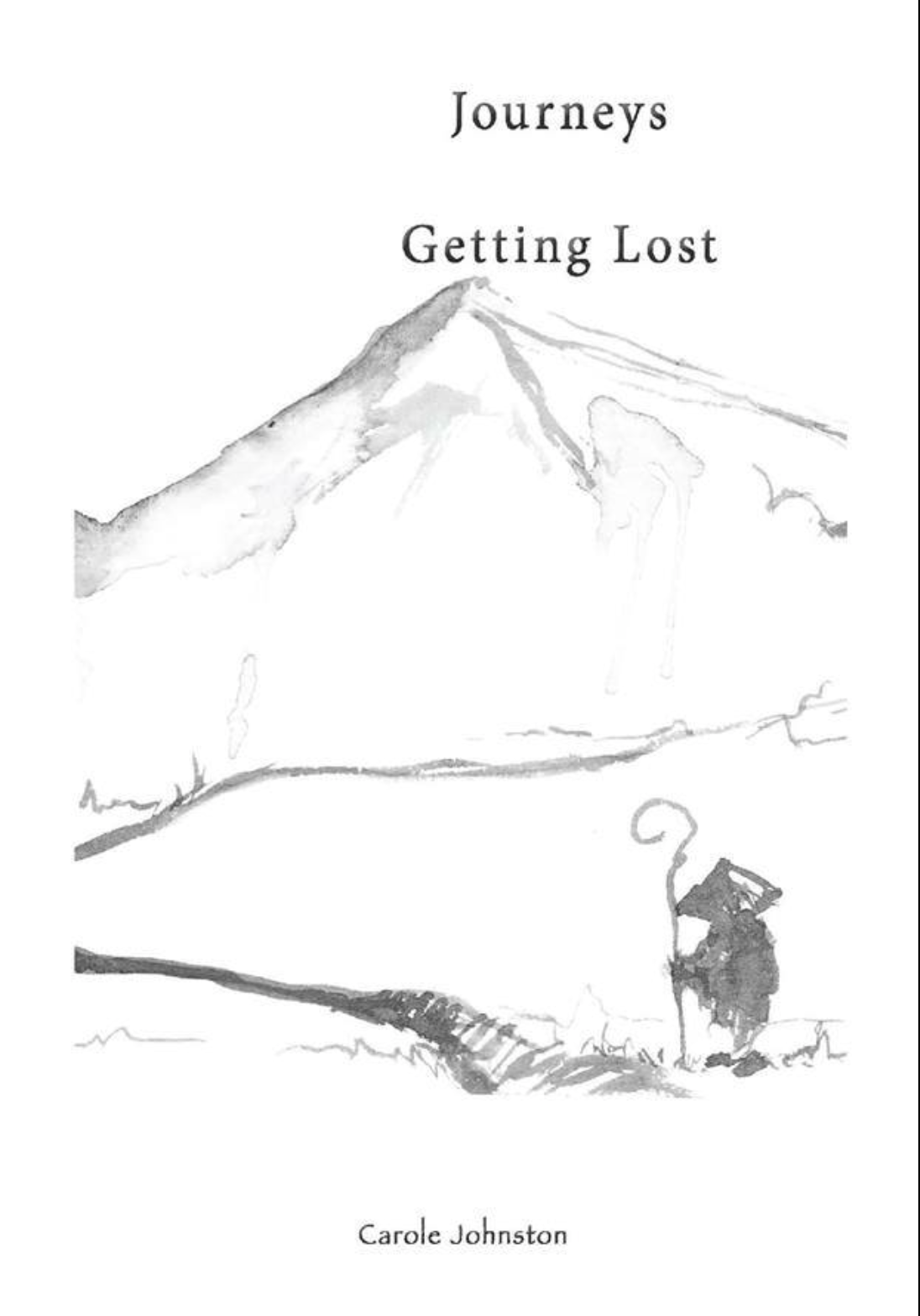Neurodivergent
dyslexic
dyspraxic
zero
peripheral
vision
hopscotch failure
backwards dancer
sensory integration
disorder please
keep the lights
low
do not laugh like a
freight train going
rogue
do not crowd me
I will panic
extra color
vision
I see red in black
shadows
eyes closed I see
purple mauve lime
green some voices are
yellow like
someone sending
Reiki…etherial
sometimes
indigo depending
on
the music
secrets of my
poems
You are invited to explore the neon mind of an obsessive, neurodivergent, poet.
Carole Johnston writes about her obsessions, color, the sky, zen mindfulness, breaking rules, and the mystical power of words.
She writes about neon fantasies glowing in the dark.
She writes about the Devine feminine archetype in Celtic myth and fairy tales.
Sometimes, obsession causes her to write thirty short poems on one theme.
Currently, Johnston is working on a collection of poems about neurodivergence, based on her own life and the lives of her family and students.
Johnston has been writing Japanese short form poems, almost every day, for decades and adheres to those forms, loosely, in all of her books.
“Journeys: Getting Lost “ is a series of “road” poems, impressions of sacred spaces infused with wonderand awe.
“Manic Dawn “ explores the darker side of joy, Irish mythology, mental illness and crows.
“Purple Ink: A Childhood in Tanka” follows the poet through a neurodivergent childhood, in a neighborhood where she never belonged.
“Midnight Butterfly and other Juxtapositions” is a flight of pure fantasy and imagination, informed by Richard Brautigan’s ,”Trout Fishing in America.” Each surrealistic poem juxtaposes the impossible, butterfly at midnight, with unlikely companions, like Kerouac and Elvis.
“Secret Words: Philosophy in Crayon,” is the ultimate crayon fantasia. Johnston believes that she possesses an extra cone, which intensifies her color vision. The poet has created myriad new colors and paired tone and hue with memory and current events in a kaleidoscope of poems.
“on the spectrum”
means what?
living in a rainbow
inside a hologram
refracting light like
your green aura makes
you invisible
The Spectrum 4
lonely…but afraid to
make friends… hiding
in closets…under tables
escape from bright lights
recoil from cacophony
from swarms of voices
you wave your hands
you rock on the floor
you crawl inside yourself
your mind explodes like
sky flowers in July
dance in your own sparkle
the spectrum
a euphemism for so
weird… no one will
play your games
no one wants to
read your maps of
fairyland
Memoirs of a Neon Mind
and other essays:
Mother Said
Her voice
like a coal truck rolling down a mountain singing, “The Old Rugged Cross,” at the top of her lungs while she sliced apples for the sweetest, crispiest pies.
“Live each day as if it’s your last,” she would say and she kept her floors waxed as if God were coming to dinner.
“you should write a book,” she would say to me.
“you’re good at it.”
the world
is filled with magic
and madness
we write to conjure
words we never said
Tanka prose about my mother, published in, Ribbons- Journal of the Tanka Society of America
Welcome to Carole Johnston's world
Carole is an imagist poet, she is obsessed with using images and color in her poetry and prose.
Much of her work is Japanese short form haiku and tanka in contemporary format which uses fewer syllables than classical forms, ( 5/7/5 or 5/7/5/7/7.) Her haiku and tanka consist of images using minimal words, designed to immerse the reader in time, place, or thought, from her mind to yours.
Carole’s prose work consist of hybrid forms using imagery and description, while maintaining a
minimal number of words.
She calls these short memoirs, “Spots in Time,” (after William Wordsworth.) Wordsworth believed that holy moments, spent in nature were impressed on his mind, and recorded in poetry. Each of her short memoirs, is a record of a “haiku moment,” a “spot of Time,” from her life, developed into a prose -poem. Many of these pieces are Haibun and Tanka Prose: prose writing accompanied by haiku or tanka.
Connect with Carole
Excited to collaborate? Share your details and expect a prompt response. We look forward to engaging with you!







